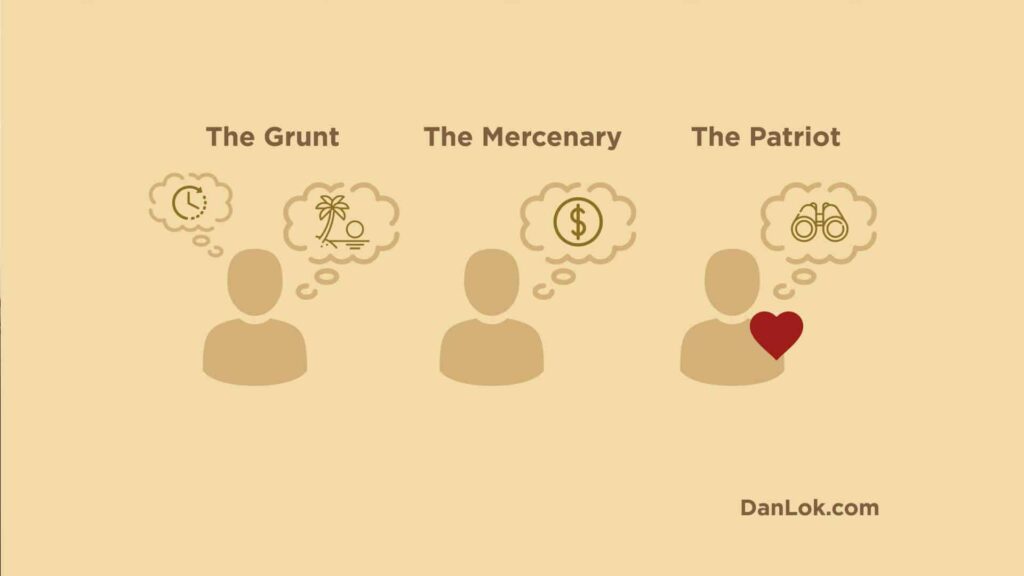Virtual teams are the future of sustainable businesses, as this is integral to building a successful business from home. The remote business model dramatically reduces your needs for costly office space and office supplies, while increasing the range of talent. Any successful business leader understands the importance of limiting their overhead in order to be more profitable. Building a virtual team is one of the most effective ways to reduce your overhead, and with the right kind of people, your business could become unstoppable.
A virtual team is a remote team that is often geographically dispersed. Without face-to-face interaction, a virtual team relies on organized digital communication, with information being shared and distributed electronically. This type of remote business model can be extremely successful.
A 2017 report by Gallup found that employees who spend some time working remotely have higher engagement than those who don’t ever work remotely, and remote employees reported having a clearer job description and more motivating metrics. The report also noted that the percentage of employees who work remotely is rising each year, and that the desirable flexibility to work-from-home is consistently a major factor when talented employees are deciding whether or not to accept a job offer.
Another factor that virtual employees consider is the flexibility to work the hours during which they feel most productive. It’s not just about having the freedom to work from home – it’s also about being freed from the confines of the traditional 9 – 5 work schedule. For example, it’s very common for millennials to have a late chronotype, where they’re more productive and creative at night. It’s therefore undeniable that giving virtual team members the freedom to choose their own work hours will only increase your team’s productivity.
Now, you might assume that building and managing a virtual team will come with dicey challenges. However, it’s all about who you hire and how you motivate them. It all comes down to hiring exceptional people, because the best team wins in business. The quality of your team is more important than the quality of your services, as even a great business model can fail if its team is lousy. If you want to know how to successfully build a virtual team full of awesome people, start with deciphering the types of employees you should be seeking.
What Should You Look For In A Virtual Team Member?
Who you hire matters, and that’s why I’m going to tell you about the three types of employees to watch out for. Maybe you’ll be able to guess which type of employee is the type you want, but either way, let me explain each type:
- The Grunt
- The Mercenary
- The Patriot
The Grunt
The Grunt is the type of employee who does the bare minimum, and they’re okay with being a mediocre employee as long as they can do their job and go home. Doing the bare minimum is doing just enough work to collect a paycheck – just enough work to not get fired. In other words, they just barely meet your expectations. It would never cross a Grunt’s mind to go above and beyond, or to exceed your expectations.
You’ll know you’re interviewing a Grunt if when it’s their turn to ask questions, all they do is ask about money instead of demonstrating an interest in the company. They’ll ask how you calculate overtime, how many vacation days they get, and how many hours they’ll have to work.
Some types of businesses have certain very basic positions that are okay to hire a Grunt for. But you don’t want too many Grunts on your team. It’s easy for an employee to do what they’re asked, but you want someone who does what they’re asked and more. That’s why you don’t want to hire Grunts.
Mercenary
A Mercenary is very transactional employee. They work for money – that’s it. Money is their main motivator. So much so, that if they ever got an opportunity to make more money elsewhere, they wouldn’t think twice. They’d take the other job regardless of what type of company it was. There’s rarely any loyalty with mercenaries.
You’ll know you’re interviewing a Mercenary because they’ll mainly be interested in how the bonus structure works and how much money they will make. Some business leaders are okay with having Mercenaries on their sales team. A lot of sales guys are Mercenaries, and because money is their motivator, you can count on them to go in for the kill. While it’s fine to hire a Mercenary for a sales role, there aren’t many other positions you’ll want to hire a Mercenary for.
Patriots
Patriots are motivated by greatness. This means that they’re motivated by something greater than money. Yes, they want to make money, but being part of something they can be proud of motivates them much more than money does. Having a sense of purpose and being part of an inspiring mission excites them more than their salary ever will.
You want the most amount of Patriots on your team as possible, because Patriots will help your business be its most profitable. They’ll want to contribute to your company’s growth, because being part of something remarkable makes them feel remarkable. They don’t just want to get paid and go home – they want to make a difference. Having a team of Patriots ensures your business maintains a growth-oriented culture.
You’ll know you’re interviewing a Patriot because instead of asking what the compensation structure is, they’re more likely to tell you about an idea they have that could take your business to the next level. When you hire a Patriot, they’ll consistently bring you ideas on how to improve the business, as they’re driven by achievement. Patriots share the company’s goals, and they find fulfillment in being be part of something larger than themselves.
When a Patriot feels proud to be on a winning team, they’ll be loyal and passionate about the company’s growth. They’re the dedicated and dependable type of employee who actually cares about the success of the company. Yes, some employees actually care about the business’ bottom line. This is a quality you must seek out, because it can’t be taught, and most employees don’t care very much about the company they work for. Patriots truly care, and are proud of what they’re part of. They get off on doing great work and making the company better. They’re hungry for greatness, and any way they can associate themselves with it.
Patriots are much less likely to nickel-and-dime you. They do expect a fair compensation, but they won’t make a point of mentioning that they worked 15 minutes overtime.
At the end of the day, you’re looking for a team of people who are loyal to the brand, and care about your company’s success as much as you do. Those types of employees do exist, so it’s all about finding them.
How Do You Find Patriots?
Be very specific in your job description. Make it clear who you don’t want. Explain the results you’re looking for and the exact qualities you’re looking for. Paint the picture of a Patriot in your job description.
You can find Patriots by paying attention to the questions asked in the interview, by noticing how passionate they are about your company, and by trying out what’s called a “Difference Test.”
A “Difference Test” is when you ask the candidate to do something out of the norm, to test their dependability and their loyalty. Pretend you want to do an initial phone interview at 4:00 AM their time. See what they say. Tests like these can really help you to weed out the flakes and find the Patriots.

What’s The Best Way To Reward Virtual Team Members?
You want to reward great work in order to keep it coming, but your virtual employees will respond differently to different types of rewards. Mercenaries and Grunts want tangible rewards such as extra pay or a cash bonus. Patriots feel most rewarded when an idea they came to you with actually improved the business, and they’re recognized for it.
In general, recognition and acknowledgement are the best ways to reward your employees. You can still implement tangible rewards such as bonuses if there is a clear system in place. Bonuses can’t be handed out at random. It should be very clear exactly what is expected of their performance to get the bonus.
Managing a Virtual Team
Virtual teams are often the most talented, and with the right people, your business stands to benefit greatly from a virtual team. The talent pool grows when your search for the perfect candidate is no longer restricted based on the talent available in your area. No matter how talented your team is, however, structuring your interactions is still crucial. Communication tools can be used to maintain order and systems.
Managing a virtual team doesn’t have to be complicated, even if each team member lives in a different part of the world. You can use digital tools such as Trello, Loom, Asana, Telegram and Slack to delegate and manage projects.
It’s not difficult to build trust and loyalty with a virtual team, either. The team will be loyal if they genuinely love what your business is all about, and they’re proud to be part of it. To maintain commitment, you can video call and chat with team members one-on-one over the phone. During these one-on-one chats is when you will give them recognition and positive acknowledgement.
Building a devoted team requires that you hire for roles – you don’t hire for tasks. When someone has a ‘role’ it means they’ve been entrusted with a ‘part’, and that’s how you instill passion. That’s how you encourage a more meaningful contribution.
Are you going to build a powerful team? What questions do you have about team building or hiring the right people? Comment below.

